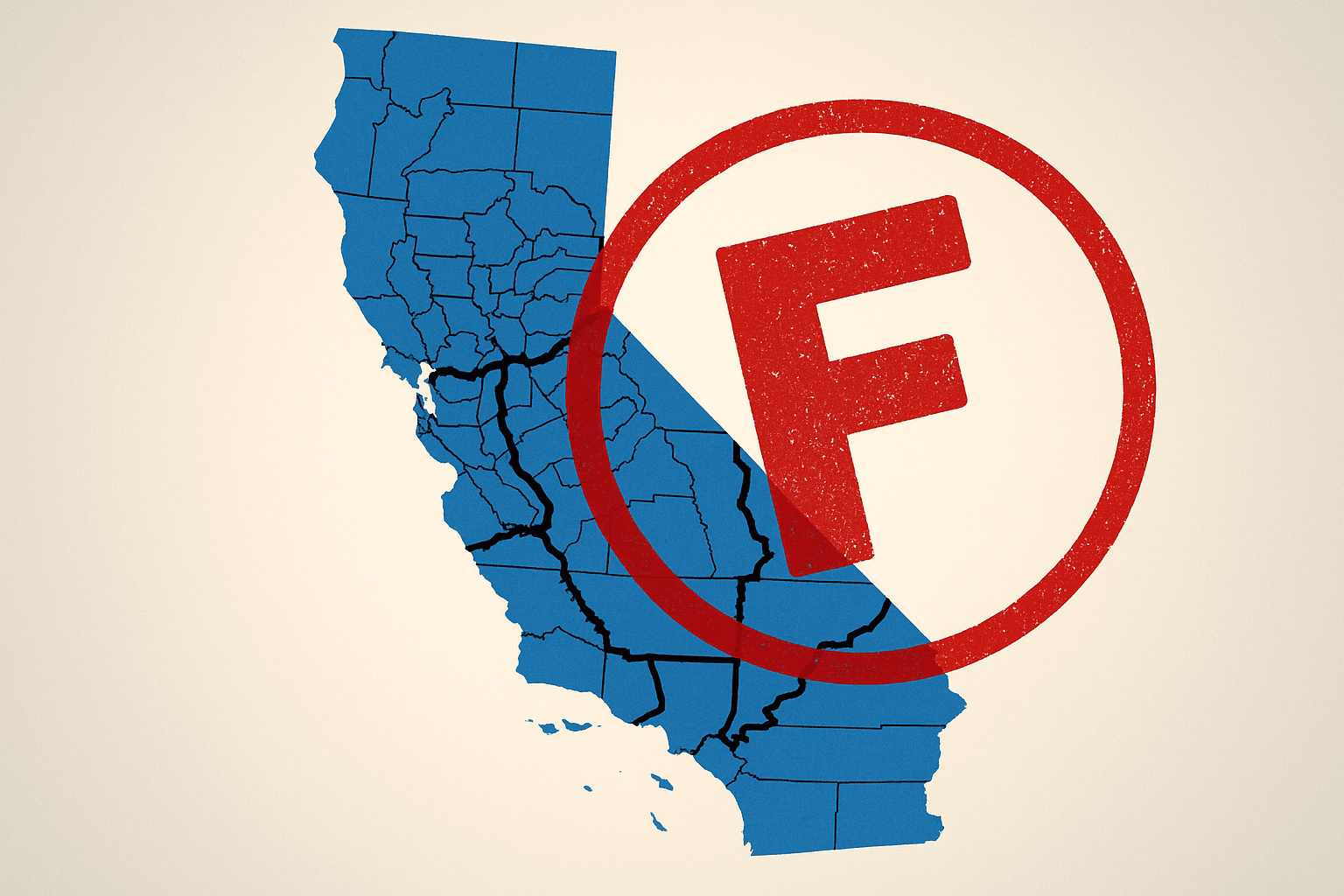Princeton Gerrymandering Project Gives California Prop 50 an 'F'

The special election for California Prop 50 wraps up November 4 and recent polling shows the odds strongly favor its passage. The measure suspends the state’s independent congressional map for a legislative gerrymander that Princeton grades as one of the worst in the nation.
The Princeton Gerrymandering Project developed a “Redistricting Report Card” that takes metrics of partisan and racial performance data in all 50 states and converts it into a grade for partisan fairness, competitiveness, and geographic features.
The current congressional map in California, drawn by the voter-approved Citizens Redistricting Commission, has an overall “B” grade. The map offered under Prop 50 drops the state to an “F” as 92% of the state’s congressional districts will lean Democrat.
“It’s been called by Princeton University’s gerrymander project one of the two worst gerrymanders in the last 50 years,” said U.S. Rep. Kevin Kiley, whose district is among the 5 currently held by Republicans that will be dramatically changed under Prop 50.
Right now, Kiley’s district is competitive with a score of R+3.8% based on 2024 election results. However, according to data compiled by Ballotpedia, it will change to D+10.2% based on how voters within the new boundaries cast their ballots in the last presidential election.
“Governor Newsom is saying, ‘well, Texas did this and that is a bad gerrymander, but California doing it in response – that’s a good gerrymander,’” Kiley said.
The problem is now we have North Carolina and Missouri that are looking at redistricting to help Republicans. Is that a good gerrymander or bad gerrymander? Then you also have states like Illinois or Maryland or Virginia that are going to redistrict to help Democrats. Is that a good gerrymander or a bad gerrymander?”
He added that “the consequence of this contorted logic is [a] race to the bottom.”
Kiley introduced a bill in August that bans any congressional redistricting until after the 2030 census following actions in Texas and California to push through aggressively partisan gerrymanders. The bill hasn’t moved since its introduction.
To clarify, Texas – which already had an ‘F’ grade from the Princeton Gerrymandering Project – received another ‘F’ for its new map.
Texas acted on demands from President Donald Trump to deliver 5 more seats to Republicans in Congress. Newsom immediately responded with a plan to nullify these gains by circumventing the California Constitution’s ban on legislative and partisan gerrymandering.
Newsom and his allies say they are “fighting fire with fire” and are doing this to defend democracy against what they call Trump’s attempt to rig elections. Newsom recently posted an ad on X featuring prominent Democratic figures, saying Californians can “restore democracy.”
Prop 50 opponents, like Kiley, say “when you fight fire with fire, the whole world burns.”
It is now up to California voters to pass or reject a constitutional amendment that allows a congressional gerrymander to go into effect until the Citizens Redistricting Commission draws new maps in 2031.
Recent polling shows that 62% of California voters support Prop 50 – pointing to the strong likelihood of its passage on November 4 even if the poll isn't perfectly accurate. Prop 50 is the fourth most expensive ballot measure race in California history.
It is the most expensive out of any proposed in an odd-numbered year.
 Shawn Griffiths
Shawn Griffiths





